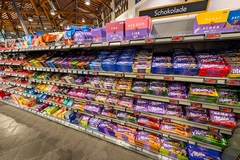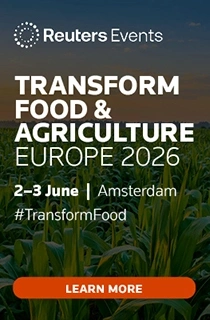
- Industry news
Industry news
- Category news
Category news
- Reports
- Key trends
- Multimedia
- Journal
- Events
- Suppliers
- Home
- Industry news
Industry news
- Category news
Category news
- Reports
- Key trends
- Multimedia
- Events
- Suppliers
AAK and Checkerspot unlock fermentation to develop structuring fat substitute from microalgae
25 Mar 2024 --- California-based Checkerspot and AAK have joined forces to develop an alternative source of structuring fats and oils by tapping into the fermentation of microalgae. The move aims to commercialize and scale up the production of functional and sustainable substitutes as consumers continue to push for new plant-based options.
Checkerspot is a biotechnology company that makes renewable oils for performance products and food ingredients, while AAK formulates plant-based oils and fats that are added to chocolate, confectionery, bakery, dairy and plant-based foods.
“Our team at Checkerspot is able to identify and bring a strain of microalgae all the way through product development and scale up for a cost-effective, market-ready solution that meets demanding consumer expectations,” says Scott Franklin, co-founder & CSO of Checkerspot.

“Everything we do, including our strategic partnerships, is in service of our mission to positively impact people and the planet.”
What are structuring fats?
In food formulation, structuring fats and oils are used for developing newer product formats with improved nutritional profiles, such as trans-fat-free, low in saturated fats and high in mono and/or polyunsaturated fatty acids, notes a study.
In bakery applications, structured fat breaks the continuity of protein (gluten) and starch network in the batter or dough, resulting in a tender, non-chewy texture of baked products.
In the meat industry, they are used to formulate and stabilize fresh, cooked and fermented meat products such as meat suspensions and sauces, meat batters, sausages, patties and frankfurters.
Some studies also explore oil structuring for chocolate applications, including the development of heat-resistant chocolates, partial replacement of palm oil in praline fillings and controlling the oil migration-induced fat bloom.
 AAK recently unveiled an oil solution that reduces total fat in plant-based marbled meat.But, the conventional approach for structuring oil currently used in the food manufacturing industries relies heavily on crystalline triacylglycerols as the building blocks, which scientists say are rich in trans- and/or saturated fatty acids. Thus, they deem the nutritional profile of such structured oil systems unhealthy.
AAK recently unveiled an oil solution that reduces total fat in plant-based marbled meat.But, the conventional approach for structuring oil currently used in the food manufacturing industries relies heavily on crystalline triacylglycerols as the building blocks, which scientists say are rich in trans- and/or saturated fatty acids. Thus, they deem the nutritional profile of such structured oil systems unhealthy.
Burgeoning oil innovations
As companies increasingly focus on healthier fat in their products, a string of innovations are driving the edible oil industry.
Earlier this month, AAK unveiled a coconut oil and insoluble fiber flake offering that formulators can use to create plant-based meat that contains less total fat and no cholesterol while offering a similar visual appeal and cooking attributes as traditional marbled meat products.
Companies are also looking at fruit oils for healthier alternatives, such as Döhler, which taps into citrus oils for flavors and a healthy ingredient that has little impact on the planet.
Cargill’s oil solution CremoFLEX helps formulators develop indulgent products with a lowered saturated fatty acid by comparison to conventional solutions and provides clean label non-hydrogenated products.
The industry is also targeting palm oil, a fat often linked to deforestation and human rights issues. Last year, researchers in Singapore formulated a palm oil replacer from microalgae through a microalgae oil-producing plant in Indonesia, while Scottish scientists developed a 100% plant-based and allergen-free palm oil substitute, which they claim is 25% lower in total fat and contains 88% less saturated fat than conventional palm oil.
By Insha Naureen











